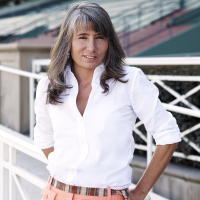 In 1939, The Partisan Review sent out a questionnaire to a number of prominent writers, asking them about literature, politics and their identities. While the questionnaire hasn’t been completely forgotten, we felt that these specifically political questions were rarely being asked of our writers. Considering that 2011 was a year of global unrest, we felt that it would be particularly relevant to update The Partisan Review’s questions. (For the curious, here are the original questions.)
In 1939, The Partisan Review sent out a questionnaire to a number of prominent writers, asking them about literature, politics and their identities. While the questionnaire hasn’t been completely forgotten, we felt that these specifically political questions were rarely being asked of our writers. Considering that 2011 was a year of global unrest, we felt that it would be particularly relevant to update The Partisan Review’s questions. (For the curious, here are the original questions.)
Yannick Murphy is the author of a number of novels, including The Call and Signed. She has also published two collections of short stories and a number of children’s books, including AHWOOOOOOOO!
2011 was the year of the Arab Spring. There have also been massive protests in Greece, Spain, Britain, and most recently, the United States. Does literature have a responsibility to respond to popular upheaval?
Literature shouldn’t have to respond to anything, but it should be about upheaval, whether it’s popular or not. All good stories should have a character or characters who are fighting against something or coming into conflict with something, whether the conflict is with themselves or with others. Literature’s main responsibility is to reveal something in a way that has never been revealed before, in the most accurate way possible.
Do you think of yourself as writing for a definite audience? If so, how would you describe this audience? Would you say that the audience for serious American writing has grown or contracted in the last ten years?
Writers should write for themselves, if it doesn’t engage the writer, then the writer has no hope of engaging anyone else. I don’t know about audiences for serious writing. I know that people I know are still interested in good writing, and the more people I meet, the more I learn they have the same desire to read quality work.
Do you place much value on the criticism your work has received? For the past decade we’ve seen a series of cuts to predominant literary magazines and literary supplements, and in response, criticism has moved online. Do you think this move to the non-professional realm has made literary criticism more or less of an isolated cult?
It’s always fascinating to know that people are reading and thinking about my work, especially when I’m not thinking about others while I’m writing it. The writing seems to take on a different life when it’s seen through the eyes of others, but a critic’s opinion of my work never seems to factor into how I write my next book. Literary criticism does seem like it’s in the hands of more lay people now, but I like that, it tells me readers care enough about writing to voice their opinion about it.
Have you found it possible to make a living by writing the sort of thing you want to, without other work? Do you think there is a place in our current economic system and climate for literature as a profession?
You don’t become a writer to pay the rent. If you do make money at writing, then you’re not only a writer, you gain an extra word in your title, and you become a “lucky writer.”
Do you find in retrospect, that your writing reveals any allegiance to any group, class, organization, region, religion, or system of thought, or do you conceive of it as mainly the expression of yourself as an individual?
My writing is an expression of myself that I hope resonates with others.
How would you describe the political tendency of American writing, as a whole, since 2001? How do you feel about it yourself?
I’m not sure I’m the best person to ask about that. I don’t read enough contemporary fiction to know the current political tendency of American writing. I re-read War and Peace recently, and the political climate then was just as fascinating as it is now.
Over the past ten years, America has been in a state of constant war with a nebulous enemy. This war has extended to fronts throughout the world. Have you considered the question of your opinion on an unending war on terrorism? What do you think the responsibilities of writers in general are, in the midst, of unending war?
It’s important to amplify the voices of those who are on the ground in this war so that we know what’s really going on, so that we know the truth, instead of politicians’ or the media’s take on the situation. If we know what’s going on then we can make informed decisions.
This post may contain affiliate links.








